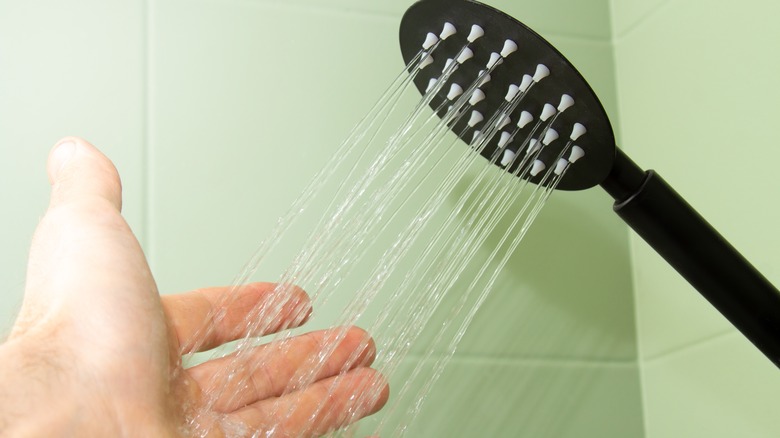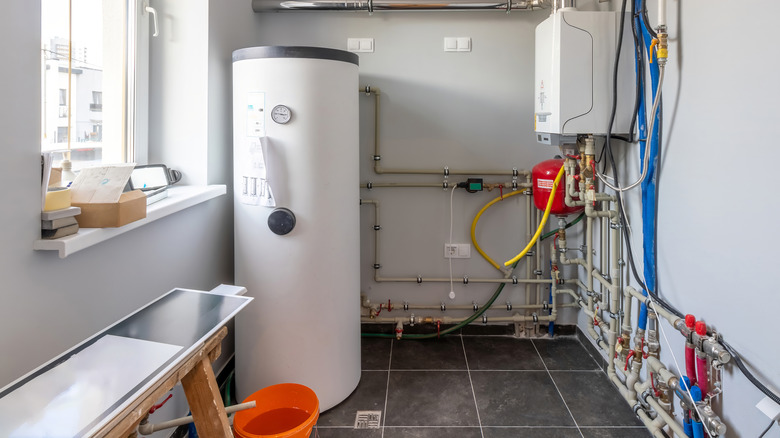How Long It Takes For A Water Heater To Heat Up (& If You Can Speed Up The Process)
If you have a large, busy family, you're probably all too familiar with getting to the shower last, only to discover that the water is lukewarm at best. This happens because your loved ones have already used up all the hot water in the tank, and the heater needs time to warm up another batch. The industry term for this phenomenon is "hot water recovery time," although you may simply know it as "ugh, not again." Annoyingly, if you continue running the tap or shower waiting for hot water to reemerge, you end up wasting a great deal of water, too.
How long this inconvenient and wasteful situation lasts depends on the type of water heater that's fitted in your home. Most gas heaters take over 40 minutes to heat up a new store of water, although some models can cut this time to half an hour. Electric and solar-powered water heaters can take even longer and leave you waiting a good hour or hour-and-a-half until the tank is full of hot water. Meanwhile, if you have a tankless water heater, you probably clicked on this article by mistake, since your water recovery time is virtually zero minutes — as soon as the water runs, your nifty little device heats it and delivers a warm, satisfying stream. Luckily, even if you don't have a tankless heater, there are a few things you can do to slash the hot water recovery time and get warm water at your taps or showers faster. We have the details below.
How to speed up the hot water recovery process
If you're not ready to invest in a new heater, there are two things you can do to speed up the hot water recovery process. One strategy to speed up the heating process is to insulate your water pipes. With insulation, the hot water sitting in the pipes loses less heat. You may think it's an insignificant improvement, but nonetheless, insulated pipes improve the efficiency of your water heater and accelerate the heating process. Also, consider investing in a hot water recirculating pump. This type of pump gets connected to your home's hot water pipes, and any time you're not using hot water, it pushes it back to the tank. This way, any unused hot water helps raise the temperature in the water tank instead of sitting around aimlessly in the pipework and losing heat.
If you don't mind spending a bit extra to quicken the water reheating process, fitting a point-of-use heater at your kitchen sink may be a good idea. If you have a large family and cook or do dishes often, you place additional strain on the water heater as it tries its best to keep up with the demand for hot water. You can connect a point of use heater to the faucet, and it will operate when you use water in the kitchen. By equipping your kitchen sink with its own heating device, you preserve the hot water store in the tank for showers or using hot water faucets elsewhere. You can buy a point-of-use heater for about $400 at Lowe's. Of course, you can invest a bit more ($600 to $2,000) and reap the full benefits of a tankless water heater instead.

